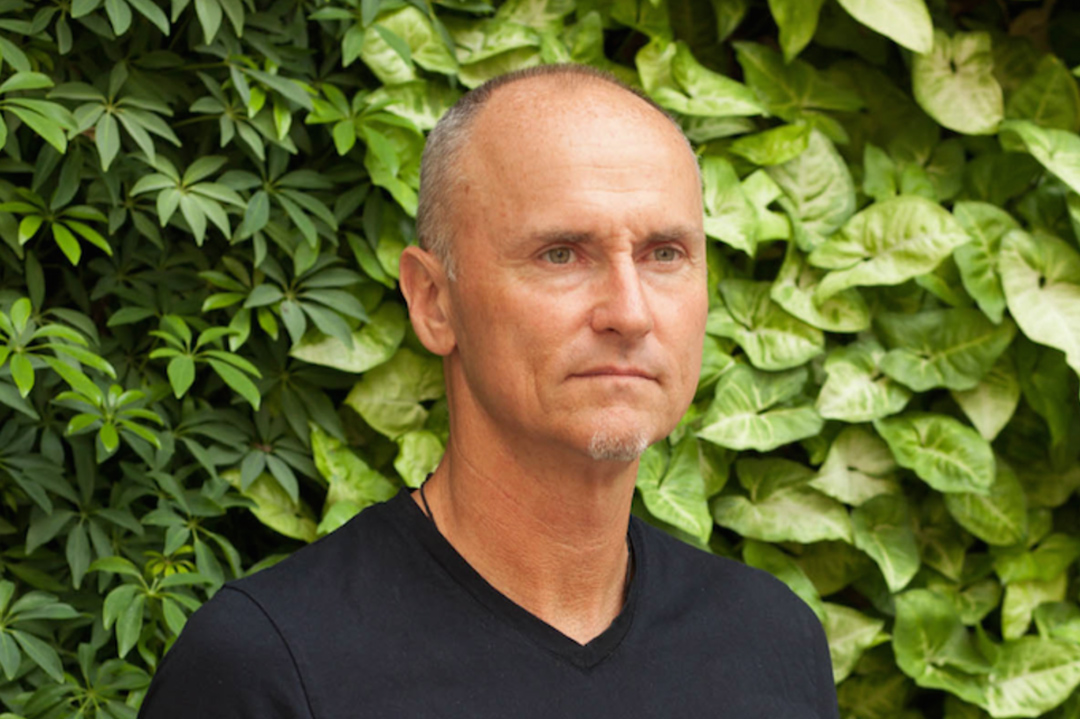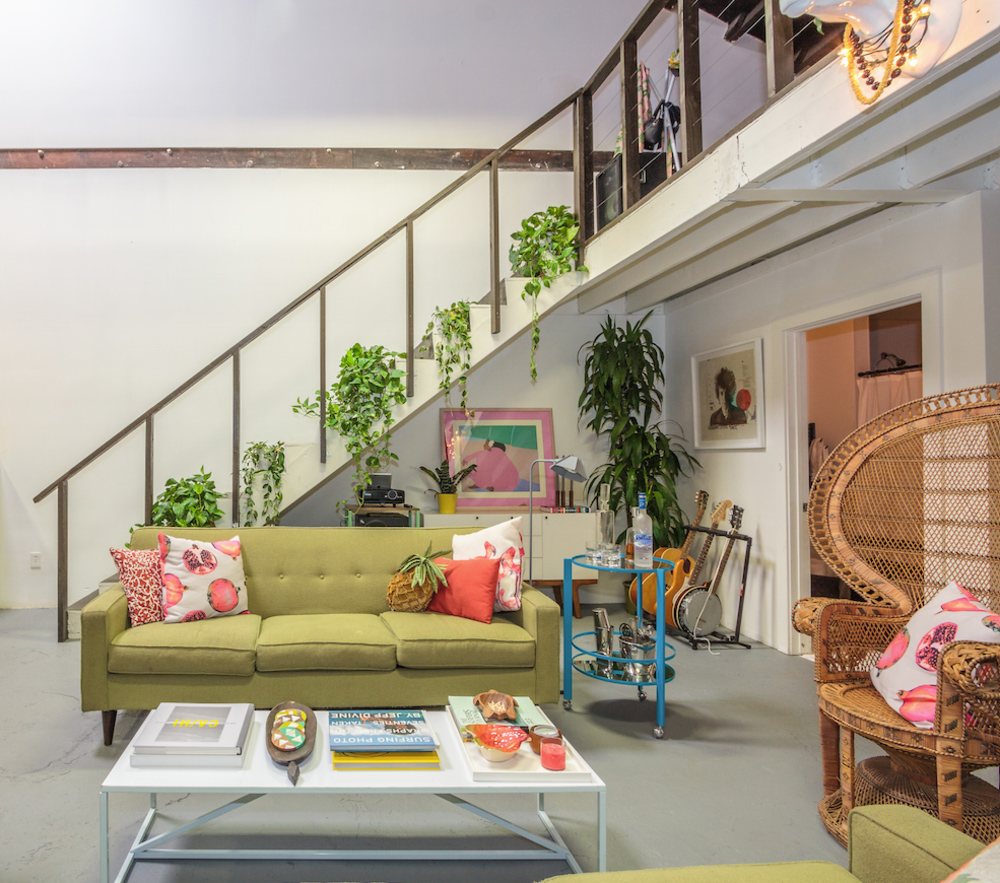Airbnb
We speak to Chip Conley, head of hospitality and strategy at possibly the most dynamic and innovative accommodation company on the planet


Originally printed in Protein Journal #14
In July, the city of Barcelona hit Airbnb with a €30,000 fine for breaching local laws requiring that property which is let to travellers is registered with the Catalan Tourist Board. This is the not the first time the international accommodation brand has fallen foul of local rental regulations, and it’s unlikely to be the last – you can’t make a Spanish omelette without breaking a few eggs. However, legal fiascos like this are barely a bump in the road, and will do very little to slow down Airbnb’s almost unbelievably rapid growth, – since 2012, the number of hosts has gone from 120,000 to 300,000. Nor will it damage its popularity or its impact on international travel culture.
Chip Conley founded the Joie de Vivre boutique hotel chain in 1987, when he was only 26. His company went on to become the second-largest boutique hotel operator in the United States. It made its name by focusing on immersing each hotel in its local culture and placing an emphasis on person-to-person service. He’s now head of global hospitality and strategy for Airbnb, possibly the most dynamic and innovative accommodation company on the planet. “Our ambition is to become the biggest, most-loved hospitality brand in the world,” he says. That’s a lofty ambition, but when you consider the rate at which it’s growing, the new generation of traveller it’s attracting and the effect it’s had on how people think about travelling, it certainly seems plausible.
To get an understanding of where Conley plans to take Airbnb it’s important to understand where it’s been. Beginning life, like many tech start-ups, as a more convenient alternative to the traditional model, Airbnb quickly gained popularity as a way for people to make a little money from their empty rooms and properties and, perhaps more importantly, as a cheaper form of accommodation for the traveller on a budget. Needless to say, this approach was a success and since its inception in 2008, Airbnb has taken a sizable bite out of the traditional hospitality market. Now that it’s a serious player, what will its next move be? It’s not building brand awareness that needs development, universally positive word-of-mouth recommendation is taking care of that, it’s ensuring that Airbnb hosts are meeting the brand’s rising hospitality standards. “What’s become clear for Airbnb is that we’ve gotten to a size where our issue isn’t quantity, it’s quality. The thing that would actually inhibit growth is a lack of quality,” says Conley. “We’ve got to a place where there are hundreds of hosts who we’ve asked to leave the site because we’ve given them warnings and they just haven’t done a great job of providing the quality.” This is a mobile lifestyle where you want to be on the road and piece together your life in a variety of different ways And so, Conley intends to teach new hosts, and its current 800,000+ hosts, the valuable art of hospitality. “We will do it by building hospitality standards and developing and recognising our hosts. We will use these standards to enforce quality in ways that are helpful to our guests and will give credit to our hosts who do the best job. How we help educate new hosts is really important, because we have 1,400 new hosts joining everyday.”
Big numbers like this require big ideas, which is why Airbnb Open, the first international convention of Airbnb hosts, will take place in San Francisco this November. Hosts from all over the world have been invited to the three-day long event for talks from prominent hospitality experts and peer-to-peer learning sessions to help successful hosts advise less successful counterparts how to improve their service. “They’ll be able to share their best practices with each other, celebrate, get inspired and hear great stories from a variety of industry hospitality leaders,” Conley enthuses. Airbnb is also launching more online tools so that hosts who are unable to make it to California still get a chance to improve their standards: “We have group platforms where hosts can connect with other hosts online around subject matters important to them.” Not sure you’re recommending the best local food spots to your guests? Chances are there’ll be another host online who can help. It’s about generating a sense of community among hosts, and challenging them all with being responsible for raising the expectations of every guest who stays in an Airbnb. It’s all about “improving the hosting ecosystem” according to Conley.
This indicates that Airbnb is making headway into being a hospitality brand when, just a few years ago, according to Conley, it was a straight-up “technology company with a design focus”. This means it will be swimming with some very large fish, but given its momentum so far, perhaps Airbnb is the shark in this tank.
One of Airbnb’s most impressive accomplishments to date is that it has opened doors for travellers who can’t afford hotel accommodation, such as for millennials who are rich in ambition and want to explore the world, but who are low on funds and aren’t lucky enough to have friends in the area with a couch they can crash on. Now, the number of places open to millennial travellers has skyrocketed. “What’s interesting is the deeper we get into looking at who our guest is, it becomes apparent that if Airbnb didn’t exist, some of them wouldn’t have made the trip,” says Conley.

However, affordable accommodation isn’t the only reason that millennial globetrotters are attracted to Airbnb. They also seek out authentic local immersion when they travel, and what’s more immersive than staying in the home of a real-life local? It’s here that Conley’s experience with boutique hotels is a particular strength: “Boutique hotels are all about helping people feel like they’re having a local experience, and that’s really what Airbnb is.”
Having access to such accommodation means that millennials can take a far more fluid approach to work. “They are freelancing. They don’t have a job in a specific place. They do a variety of different things. Airbnb is incredibly well suited to that lifestyle,” explains Conley. For people for whom the nine-to-five working day doesn’t really apply, having a home from home in almost any city in the world has the potential to redefine how and why they travel: “This is a mobile lifestyle where you want to be on the road and piece together your life in a variety of different ways. We’re just helping to facilitate that,” says Conley.
By providing new options for travellers, and enabling them to be authentically immersed in a new culture, Airbnb is challenging the traditional hotel sector. Its ambitious vision of creating an international community of hosts and guests is being realised, and it’s all based on the simple understanding that people value the human touch and that a good host will make their guests feel instantly welcome, something Conley realised when he founded Joie de Vivre: “When you’re checking into a hotel, you don’t want to checked in by a clerk, you want to be checked in by a host who is human.” https://www.airbnb.co.uk/



Discussion